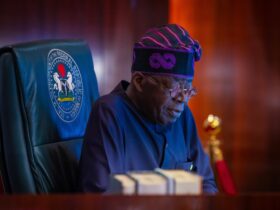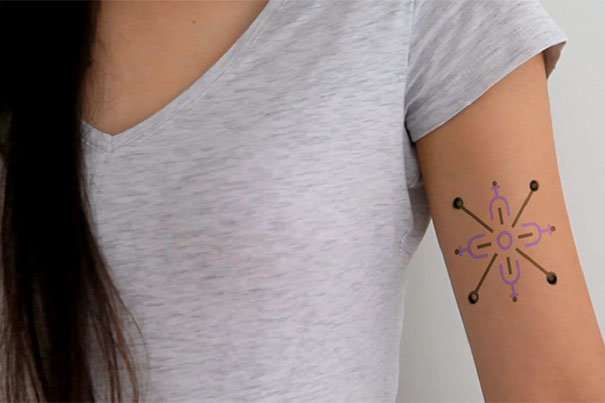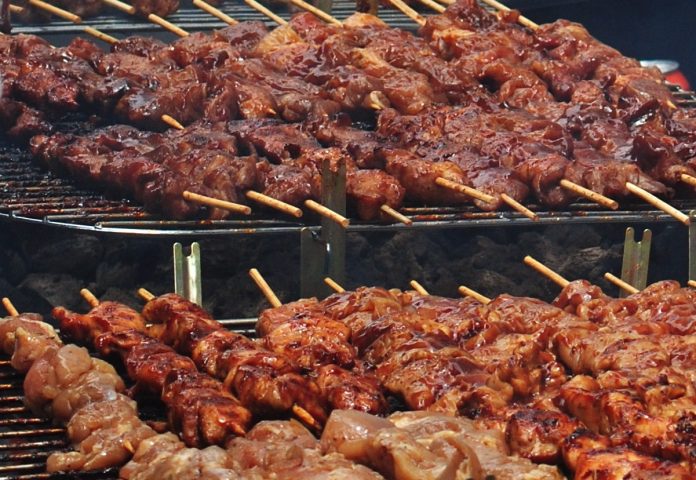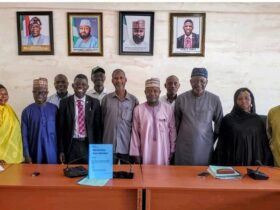Nigeria Court of Appeal Sokoto Division has set aside the discharged and acquittal order granted to two Chinese nationals, Mr. Meng Wei Kun and Mr. Xu Kuai by a Federal High Court and sentenced the two of them to six years imprisonment on two of a three count charge.
A panel of the appellate court which heard the appeal lodged by the Economic and Financial Crime Commission EFCC , after the Federal High Court discharged and acquitted the two convicts described the trial court judgment as “a fiction.”
“I regret to say that the judgment is like a fiction by the trial judge who created doubts in his mind while discharging his responsibilities,” Justice Abubakar Mahmud Talba who delivered the lead judgement held.
The two Chinese Nationals were found guilty on two of a three count charge bordering on conspiracy, money laundering and attempted bribery to the tune of N50 Million brought against them by the Economic and Financial Crimes Commission, EFCC.
Justice Abubakar Mahmud Talba held that the appeal succeed and found the respondents guilty on counts 1 and 2. He accordingly sentenced both convicts to 3years imprisonment each on each of the counts, with an option of N10 Million fine on each count.
Justice Talba held that the EFCC had proved counts 1 and 2 of the charge before the Federal High Court beyond reasonable doubt.
He however agreed with the lower Court on count 3 and accordingly struck it out on the grounds that a similar charge was pending before the Sokoto High Court.
According to Justice Talba, “the respondents are charged with conspiracy and making a cash payment in excess of the threshold provided by the Money Laundering Prohibition Act 2011 ( as amended in 2012) to Abdullahi Lawal (then zonal head of EFCC Sokoto) which was established beyond reasonable doubt before the lower Court but surprisingly the trial Judge summersaulted in his judgement and recanted.
“I regret to say that the judgment is like a fiction by the trial judge who created doubts in his mind while discharging his responsibilities.
“Without doubt the trial judge grossly misconceived that no offence was committed.
“Conspiracy is a distinct offence even if the commission of the actual offence is aborted, and in the instant case there exists positive cogent inescapable evidence the offence was committed”
Justice Talba therefore held that the appeal was “immensely meritorious” and convicted and sentenced the Chinese nationals to 3years on each of the two counts with an option of N10 Million fine each on each count.
He concluded by saying that, ” the respondents are Chinese and an offence of this gravity in their home country attracts the death penalty yet here they are corrupting our Country. The Courts of the Federal Republic of Nigeria will not condone corruption in any way; as President Muhammadu Buhari has said “if we don’t kill corruption, corruption will kill Nigeria”.
The two convicts: Mr. Meng Wei Kun adult, male, and Mr. Xu Kuai adult, male, had on or about the 11th day of May, 2020 in Sokoto within the Jurisdiction of the Court (Federal High Court) did conspire amongst yourselves to commit an offence to wit: making cash payment of the sum of Fifty Million Naira (N50,000,000.00) which sum exceed the amount authorised by Law without going through a financial institution and thereby committed an offence contrary to Section 18(a) of the Money Laundering Prohibition Act 2011 as amended in 2012, and punishable under Section 16(2) (b) of the same Act”.
The two men on the 11th day of May 2020 at about 2200hrs at Kasarawa Area, Airport road Sokoto State within the Jurisdiction of the Court (Federal High Court) without going through a financial institution made a cash payment of the sum of Fifty Million Naira (N50,000,000.00) to one Abdullahi Lawal the then Zonal Head of Economic and Financial Crimes Commission Sokoto which exceeded the Five Million Naira (N5,000,000.00) for the purpose of compromising an ongoing investigation involving the company China Zhongao Nigeria Ltd and they thereby committed an offence contrary to Section 1(a) of the Money Laundering Prohibition Act 2011 as amended in 2012 and punishable under Section 16 (2) (b) of the same Act”.











